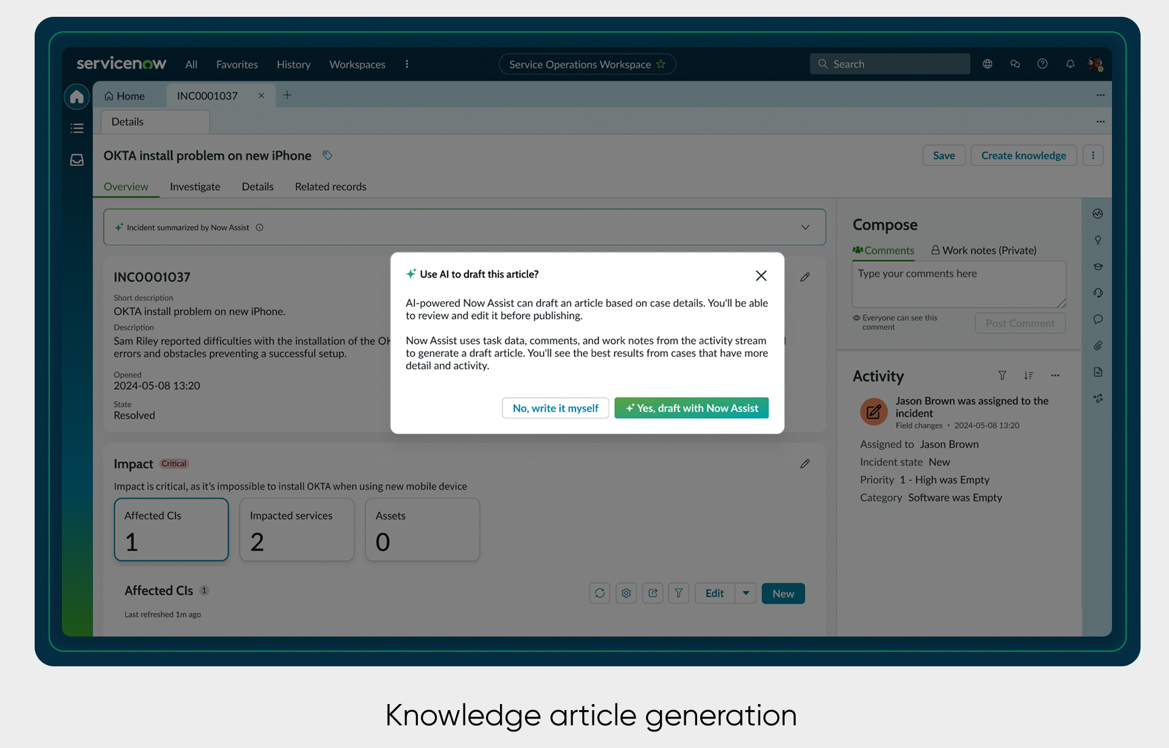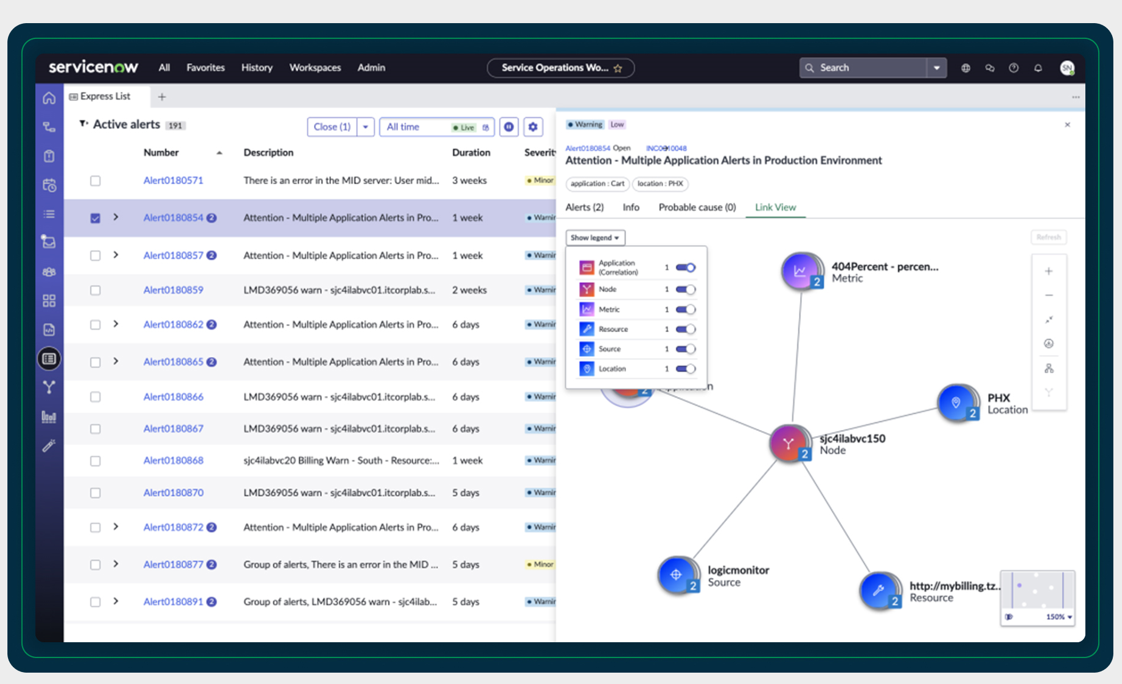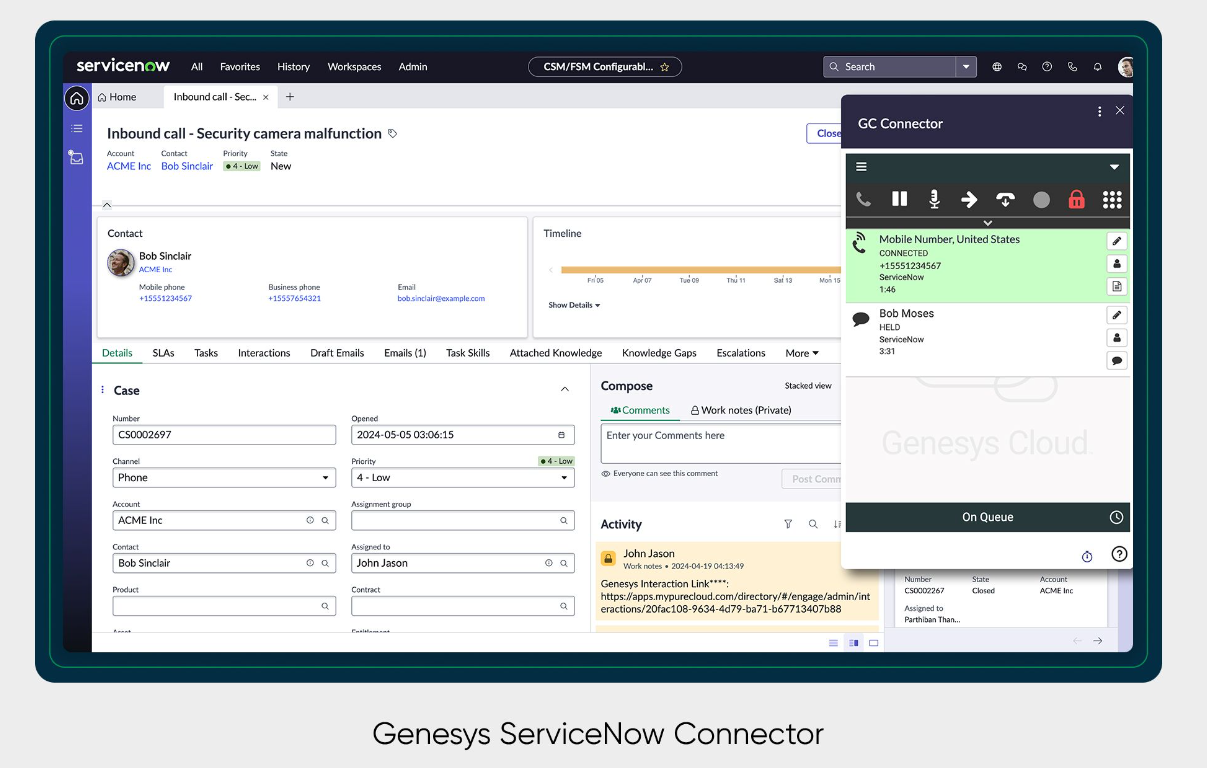ServiceNow, which launched a bevy of generative AI tools across its Now Platform, is giving customers the ability to bring their own large language models (LLMs) to use in Now Assist.
With the move, announced at Knowledge 2024, ServiceNow customers will be able to use ServiceNow LLMs, their own models or general purpose LLMs.
ServiceNow's build your own LLM effort comes as model choice becomes a big issue for enterprises. Companies are looking to use open source models and tailoring them with enterprise data or use a service like Amazon Bedrock or Google Cloud Model Garden to mix and match models as needed. Enterprises are also wary of being locked into any one vendor's model.
Bring your own model capabilities play into ServiceNow's strategy to offer multiple models based on use cases. ServiceNow has focused on use case specific LLMs that are accurate and efficient to run. "When the models are smaller, the cost to run them is not high; and number three, from an end user perspective, a smaller model always performs better," said ServiceNow President and Chief Operating Officer CJ Desai.
ServiceNow CEO Bill McDermott said on the company's first quarter earnings call that the company has partnered closely with Microsoft, SAP, IBM and a host of others. "We're very open to all the participants that are making LLMs and they can all integrate with ServiceNow and we'll own the domain specific to ServiceNow, but we welcome all participants," said McDermott. "We're not interested in shutting anybody out."
McDermott said during his Knowledge 2024 keynote that AI is critical for CEOs, who need to deliver AI-driven transformation plans. "I've met more than 200 CEOs individually in the last 12 months and they're all in on AI. The board is saying to them 'what is your plan for AI?' CEOs said AI will be highly disruptive to my business and my industry. We have a once in a lifetime shot to be the great simplifier."
- ServiceNow posts strong Q1 touts genAI uptake
- ServiceNow CFO outlines method to Pro Plus SKU pricing
- 77% of CxOs see competitive advantage from AI, says survey | Why digital, business transformation projects need new approaches to returns | Why you'll need a chief AI officer | Enterprise generative AI use cases, applications about to surge
Although bring your own LLM was the headliner at Knowledge 2024, ServiceNow announced a series of generative AI innovations. Here's a look at the roundup, which will be mostly available across the Now Platform May.9.
- ServiceNow expanded the Now Assist portfolio with Strategic Portfolio Management (SPM), which uses generative AI to ground planning and prioritize work based on customer feedback. Now Assist for SPM synthesizes customer feedback and requests in one place and enables business users to create demands without long forms.
- The company added genAI features including playbook and app generation so developers can scale. Now Assist for Creator's playbook generation enables users to define processes for automation and make them repeatable. App generation in Now Assist for Creator creates business applications via natural language.
- Now Assist for Creator also gets service catalog generation so developers can generate a catalog item, descriptions, questions and text prompts quickly.
- ServiceNow admits will get prompt management tools that incorporate business context and company goals.
- ServiceNow launched knowledge article summarization for agents.
- The company's Government Community Cloud will get Now Assist for public sector customer experiences. Government Community Cloud will be available in the second half of 2024 or sooner depending on FedRamp approval.

In addition, the company is expanding generative AI features across its Now Platform. For instance, knowledge article generation will be available in Now Assist for IT Service Management, Now Assist for Customer Service Management, and Now Assist for HR Service Delivery.
Other Now Assist features across products include post call summarization, feedback summaries and simplification of alerts.
Creator Studio, Automation Engine
ServiceNow outlined no-code tools to scale the automation of workflows with availability May 9.
The company launched Creator Studio, which will be available with ServiceNow App Engine, to offer guided experiences to build applications. Business processes owners can create applications with guardrails and governance.
ServiceNow also enhanced Automation Engine, which automates workflows and aggregates technologies such as robotic process automation, API integration, document intelligence and process mining with governance.
Automation Engine will now get Automation Center for tracking of returns and one view of request and tasks as well as automation lifecycle management. Embedded Task Automation will take ServiceNow's existing RPA and provides tools to trigger automations across various workflows.

Manufacturing Commercial Operations
At Knowledge 2024, ServiceNow stepped up its efforts to target the manufacturing industry. The company outlined Manufacturing Commercial Operations (MCO) takes genAI to hone sales, service, support and order-to-cash processes.
Part of MCO is Employee Center (EC) Pro Kiosk, which targets factory workers without phones. EC Pro Kiosk includes self-service company communications, resources and hire-to-retire processes.
With MCO and EC Pro Kiosk, ServiceNow is focusing on workflows and employee experiences and leaving supply chain to other players.
According to ServiceNow, MCO is built on ServiceNow Customer Service Management and Sales and Order Management. Using gen-AI, MCO is focused on sales management, service management, field operations and customer facing workflows.
MCO is an example of how ServiceNow can take various platform offerings and reconfigure them to focus on specific industries.
ServiceNow, Genesys partnership
Genesys and ServiceNow said they will integrate Genesys Cloud with ServiceNow Customer Service Management (CSM). The integration will be called Unified Experience from Genesys and ServiceNow.
Unified Experience from Genesys and ServiceNow will be available later in 2024 and aim to do the following:
- Give agents one workspace in ServiceNow CSM that integrates data and tools for customer experience across digital and voice channels.
- Provide one engine for work routing and experience orchestration via Genesys Cloud. ServiceNow will connect workflow automations across processes.
- Tools to optimize customer journeys.
Both companies will sell Unified Experience from Genesys and ServiceNow and integrated features will be rolled out "under controlled availability."



